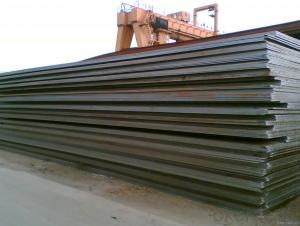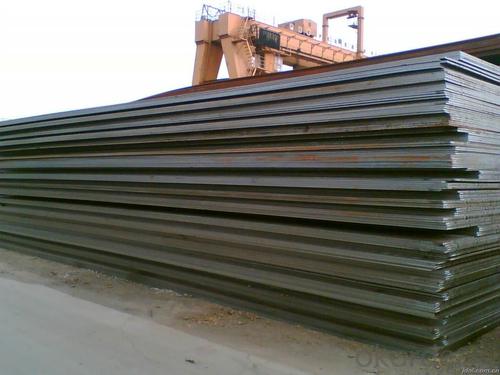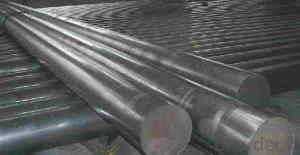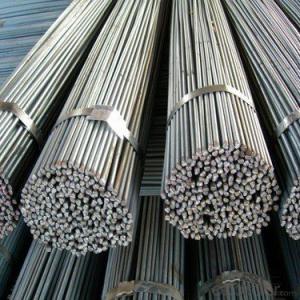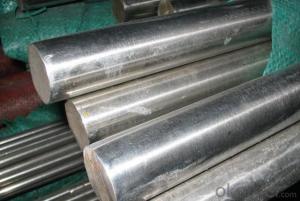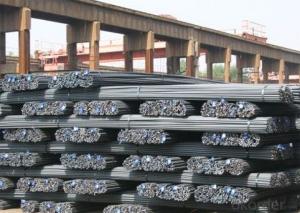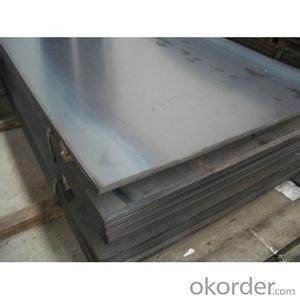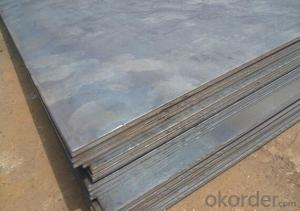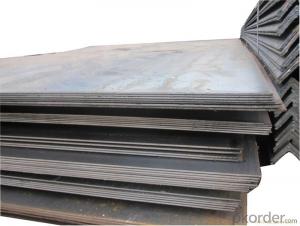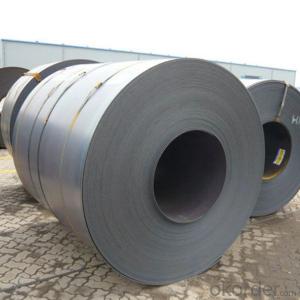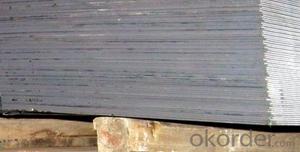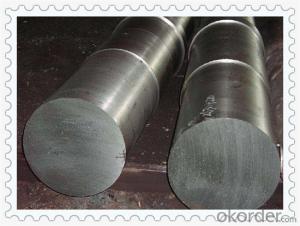Hot Rolled Mild Steel Plate Q235 Carbon Steel Sheet
- Loading Port:
- China main port
- Payment Terms:
- TT OR LC
- Min Order Qty:
- 30 m.t.
- Supply Capability:
- 10000 m.t./month
OKorder Service Pledge
OKorder Financial Service
You Might Also Like
Specification
Product Information
Product | Q235 carbon steel sheet |
Place of origin | China mainland |
MOQ | 25 ton |
Thickness | 1.0mm-6.0mm |
Width | 1000mm-2000mm |
Length | 2000mm-3000mm |
Application | widely |
Standard | AISI,ASTM,DIN,JIS,GB,etc |
Tpye | Steel plate |
Surfacing | Coated |
Productive Technology | Hot Rolled & Cold Rolled |
Price | Negotiable. |
Port | Dalian |
Payment Terms | D/P,T/T,Western Union,MoneyGram |
Product Ability | 1000 tons per month |
Packing | standard seaworthy export packing or as the request of customers |
Product Show
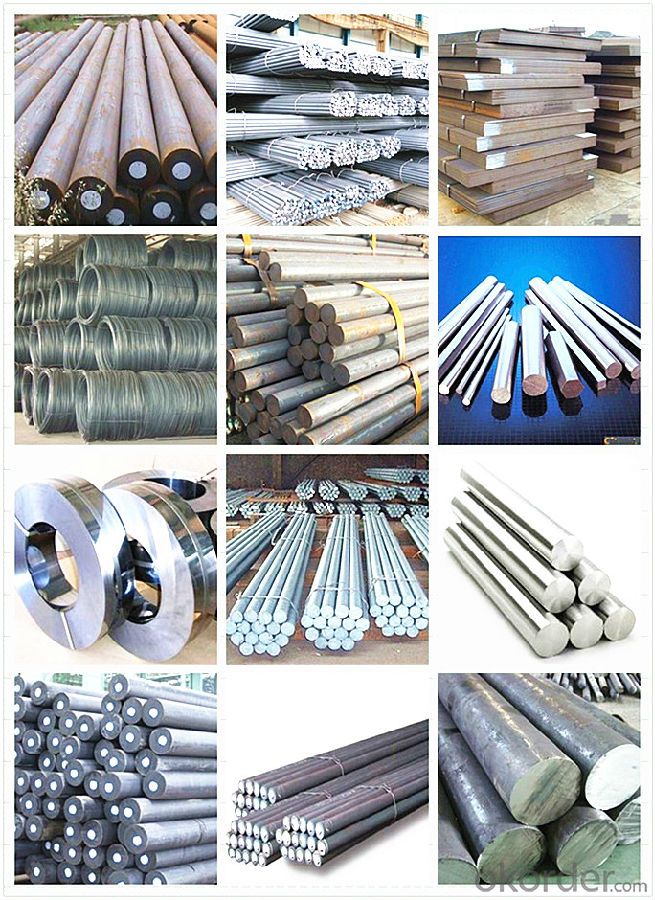
Workshop Show
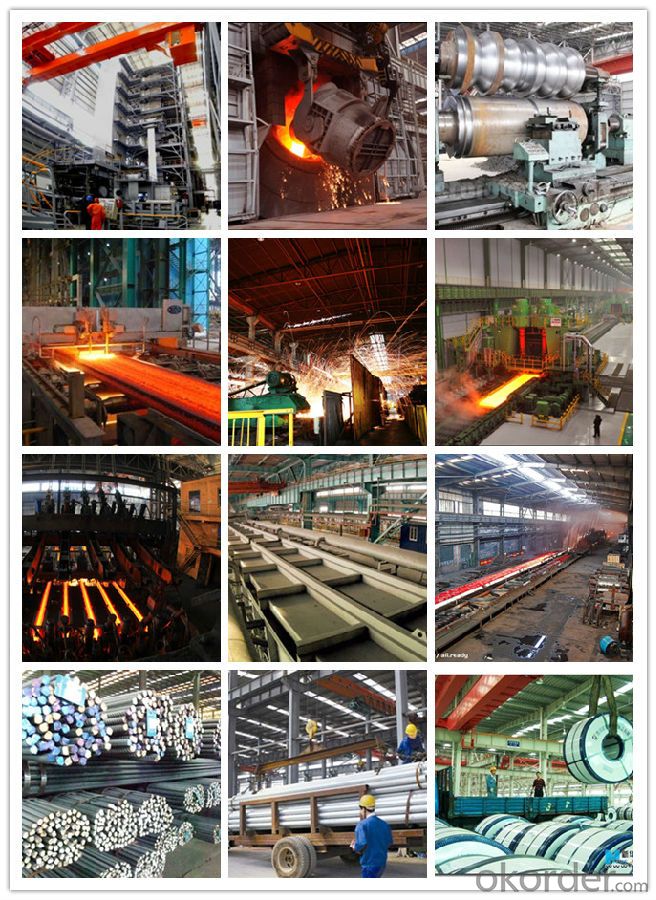
Shipping
1. FedEx/DHL/UPS/TNT for samples, Door-to-Door;
2. By Air or by Sea for batch goods, for FCL; Airport/ Port receiving;
3. Customers specifying freight forwarders or negotiable shipping methods!
Delivery Time: 3-7 days for samples; 5-25 days for batch goods.
Payment Terms
1.Payment: T/T, L/C, Western Union, MoneyGram,PayPal; 30% deposits; 70% balance before delivery.
2.MOQ: 1pcs
3.Warranty : 3 years
4.Package Informations: 1) EXPORT, In 20 feet (GW 25 ton) or 40 feet Container (GW 25 ton)
2)as customer's requirement
Why choose us?
(1) The leading exporter in China special steel industry.
(2) Large stocks for various sizes, fast delivery date.
(3) Good business relationship with China famous factories.
(4) More than 7 years steel exporting experience.
(5) Good after-sales service guarantee.
- Q: What are the different processes involved in making special steel?
- The different processes involved in making special steel include melting the raw materials in a furnace, refining the molten steel to remove impurities, adding alloying elements to achieve desired properties, casting or forming the steel into desired shapes, heat treating to enhance its strength and hardness, and finally finishing processes like machining or polishing to achieve the desired surface finish.
- Q: What are the specific requirements for special steel used in the defense armor industry?
- The specific requirements for special steel used in the defense armor industry include high strength and hardness, excellent toughness, resistance to ballistic impact and penetration, durability, corrosion resistance, and the ability to be fabricated into complex shapes. Additionally, the steel must meet strict quality control standards and be able to withstand extreme conditions such as high temperatures and harsh environments.
- Q: What are the applications of special steel in the nuclear supply chain?
- Special steel is widely used in the nuclear supply chain due to its unique properties. It is primarily utilized in various applications such as reactor vessel fabrication, fuel assembly manufacturing, and construction of critical components in nuclear power plants. The exceptional strength, durability, and resistance to corrosion of special steel ensure the safe and reliable operation of nuclear facilities. Additionally, special steel is also employed in the production of storage casks for nuclear waste, as it provides the necessary structural integrity and protection against radiation. Overall, the applications of special steel in the nuclear supply chain are crucial for maintaining the integrity and safety of nuclear power generation.
- Q: What is the cost of special steel compared to other materials?
- The cost of special steel compared to other materials can vary depending on a range of factors. Special steel, also known as alloy steel or tool steel, is typically more expensive than regular carbon steel due to its enhanced properties and composition. Its high strength, durability, and resistance to wear and corrosion make it suitable for specialized applications in industries such as automotive, aerospace, and construction. Compared to non-ferrous metals like aluminum or copper, special steel often comes at a lower cost. However, it is important to consider that different types of special steel can have varying price points. For instance, stainless steel, which contains chromium and other elements for enhanced corrosion resistance, tends to be more expensive than carbon steel. When comparing the cost of special steel with other materials such as plastics or composites, it is crucial to evaluate the specific requirements of the project. While these alternatives might have lower initial costs, they may not possess the same level of strength, heat resistance, or durability as special steel. Therefore, the long-term benefits and savings provided by special steel, such as reduced maintenance, longer lifespan, and improved performance, should also be taken into account. Ultimately, the cost of special steel compared to other materials is influenced by factors like the type and grade of steel, market demand, quantity needed, and any additional processing or finishing required. Consulting with suppliers, considering the specific application requirements, and conducting a thorough cost-benefit analysis will help determine the most suitable and cost-effective material choice for a particular project.
- Q: How does special steel withstand extreme temperatures?
- Special steel is able to withstand extreme temperatures due to its unique composition and production process. One key factor is the addition of alloying elements such as chromium, molybdenum, and nickel, which enhance the steel's heat resistance. These elements form stable oxides on the surface of the steel, creating a protective barrier against oxidation and corrosion at high temperatures. Furthermore, special steel undergoes specialized heat treatment methods like quenching and tempering, which refine its microstructure and improve its mechanical properties. This process enhances the steel's ability to maintain its strength and hardness even when exposed to extreme temperatures. Additionally, the manufacturing process of special steel involves precision and control over the cooling rate during its production. This controlled cooling prevents the formation of brittle phases, ensuring that the steel retains its toughness and ductility at both high and low temperatures. Moreover, the grain size of special steel is carefully controlled through techniques like grain refinement, which leads to a more homogeneous and fine-grained microstructure. This fine-grained structure enhances the steel's resistance to thermal fatigue and creep, allowing it to withstand prolonged exposure to extreme temperatures without significant degradation. Overall, the combination of alloying elements, specialized heat treatment processes, controlled cooling, and refined microstructure makes special steel highly capable of withstanding extreme temperatures while maintaining its structural integrity and mechanical properties.
- Q: What are the applications of special steel in the power generation supply chain?
- Special steel has various applications in the power generation supply chain, primarily due to its high strength, corrosion resistance, and ability to withstand extreme temperatures. It is commonly used in the construction of power plant components such as turbines, boilers, and heat exchangers. Special steel is also utilized in the manufacturing of transmission towers, electrical transformers, and generator rotor shafts. Overall, its superior properties enhance the efficiency, reliability, and longevity of power generation equipment, ensuring a stable and uninterrupted energy supply.
- Q: How does special steel resist fatigue?
- The durability and strength of special steel are enhanced through the incorporation of specific properties that resist fatigue. The high tensile strength of this steel is a primary factor in its ability to withstand stress and load without deforming or breaking, preventing the initiation and spread of fatigue cracks. In addition, special steel often undergoes heat treatment processes like quenching and tempering to further enhance its fatigue resistance. This alters the steel's microstructure, creating a fine and uniform grain structure that improves its mechanical properties. It increases hardness and toughness, reducing susceptibility to fatigue failure. Furthermore, special steel can be alloyed with elements like chromium, molybdenum, and vanadium to enhance its resistance to fatigue. These elements form carbides and other strengthening phases within the steel, improving hardness, strength, and resistance to fatigue crack propagation. Moreover, specialized surface treatments like shot peening and nitriding can be applied to special steel. Shot peening involves bombarding the steel surface with small metal particles, inducing compressive residual stresses. These stresses counteract the tensile stresses that cause fatigue cracks, thus enhancing fatigue resistance. Nitriding involves diffusing nitrogen into the steel surface, creating a hardened layer that improves wear resistance and, consequently, fatigue resistance. In conclusion, special steel resists fatigue through a combination of factors, including high tensile strength, specific heat treatment processes, alloying elements, and specialized surface treatments. These properties work together to enhance the steel's durability, strength, and resistance to fatigue crack initiation and propagation, making it a reliable and long-lasting material for various applications.
- Q: What are the key differences between special steel and tool steel?
- Special steel and tool steel possess distinct characteristics and uses. Here are the main disparities: 1. Composition: Special steel encompasses a diverse range of steel alloys tailored for specific applications. Stainless steel, high-strength alloy steel, and heat-resistant steel are some examples. In contrast, tool steel refers to a particular type of special steel designed for tool, die, and mold production. Tool steel typically contains higher levels of carbon and other alloying elements like chromium, vanadium, or tungsten, which enhance its hardness, wear resistance, and toughness. 2. Hardness and wear resistance: Tool steel stands out for its exceptional hardness and wear resistance, making it ideal for cutting, shaping, and forming materials. It can endure high temperatures and resist deformation, ensuring the longevity of tools and dies. On the other hand, special steel may not possess the same level of hardness and wear resistance as tool steel. Its properties vary depending on the specific alloy and application. Special steel alloys may prioritize other properties such as corrosion resistance or strength. 3. Manufacturing processes: Tool steel often undergoes specialized manufacturing processes like hot working, cold working, or heat treatment to achieve the desired properties. The production of tool steel involves precise temperature control and cooling rates to attain the necessary hardness and toughness. In contrast, special steel may undergo various manufacturing processes depending on the desired properties, such as forging, casting, or heat treatment. 4. Applications: Tool steel finds primary application in the production of tools, dies, and molds used for cutting, shaping, and forming materials. Industries such as automotive, aerospace, and machinery commonly utilize tool steel. Conversely, special steel has a wide range of applications depending on the specific alloy and properties. It can be employed in industries such as construction, energy, and manufacturing, where specific properties like corrosion resistance, heat resistance, or strength are required. To summarize, the key distinctions between special steel and tool steel lie in their composition, hardness, wear resistance, manufacturing processes, and applications. While special steel encompasses various steel alloys with specific properties, tool steel is a specific type of special steel tailored for tooling applications. Tool steel is characterized by its exceptional hardness and wear resistance, making it suitable for cutting and shaping materials. On the other hand, special steel can possess a broader range of properties depending on the specific alloy and application.
- Q: What are the applications of special steel in the agriculture sector?
- Special steel has various applications in the agriculture sector. It is often used in the manufacturing of agricultural machinery and equipment such as tractors, plows, harvesters, and irrigation systems. The high strength and durability of special steel make it ideal for withstanding the demanding conditions and heavy loads typically encountered in agricultural operations. Additionally, certain types of special steel, such as stainless steel, are corrosion-resistant, which is crucial for equipment exposed to moisture and chemicals in the farming environment.
- Q: How does special steel contribute to the railway industry?
- Special steel plays a crucial role in the railway industry by contributing to the development and maintenance of efficient and reliable rail systems. The unique properties of special steel, such as high strength, durability, and resistance to wear and tear, make it an ideal material for various components and structures within the railway infrastructure. One of the key areas where special steel contributes to the railway industry is in the manufacturing of rails. Special steel rails are designed to withstand heavy loads and intense usage, ensuring the safe and smooth movement of trains. These rails are highly resistant to wear, fatigue, and deformation, resulting in longer service life and reduced maintenance costs. Additionally, special steel is used in the manufacturing of wheelsets, which are critical components of trains. The high strength and durability of special steel make it ideal for wheelset production, ensuring reliable performance and minimizing the risk of derailments. The use of special steel in wheelsets also contributes to increased operational efficiency, as it reduces friction and enhances energy transmission, leading to improved fuel economy and reduced environmental impact. Furthermore, special steel is utilized in the construction of bridges, tunnels, and other infrastructure elements within the railway network. These structures must withstand heavy loads, extreme weather conditions, and various environmental factors. Special steel's exceptional strength, corrosion resistance, and longevity make it a preferred choice for such applications, ensuring the safety and reliability of rail systems. In summary, special steel significantly contributes to the railway industry by providing the necessary strength, durability, and resistance to wear and tear for various components and structures. Its use in rails, wheelsets, and infrastructure elements enhances the efficiency, reliability, and safety of rail systems, ultimately benefiting passengers, freight transport, and the overall transportation sector.
Send your message to us
Hot Rolled Mild Steel Plate Q235 Carbon Steel Sheet
- Loading Port:
- China main port
- Payment Terms:
- TT OR LC
- Min Order Qty:
- 30 m.t.
- Supply Capability:
- 10000 m.t./month
OKorder Service Pledge
OKorder Financial Service
Similar products
Hot products
Hot Searches
Related keywords
